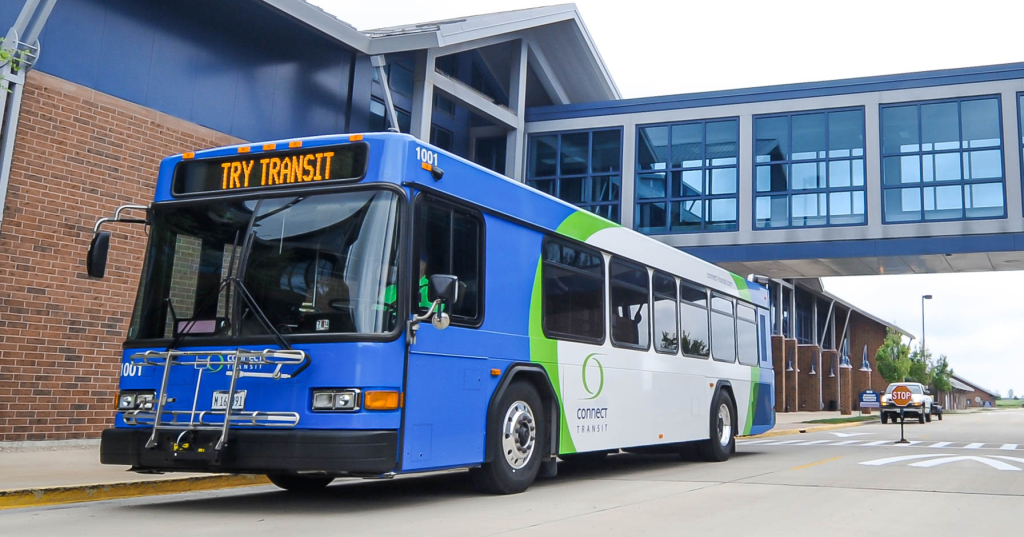
By 25 News
BLOOMINGTON – If you need a bus ride around the Twin Cities, you may soon be able to get one for free.
Connect Transit, Bloomington-Normal’s public transit system, is considering a proposal to eliminate bus fares entirely, thanks to $28 million in state and federal grants that can offset the possible deficit and bring broader access to more riders.
Connect Transit typically asks Bloomington and Normal governments for part of their budgets every year to cover the cost of everything from equipment and facilities to staff. This year, they’re not asking for a dime, adding the money will go to cover other costs for its operations.
“I think that this is important for us to recognize that we are a part of them, we’re a part of their infrastructure, and that they should benefit when we benefit,” says David Braun with Connect Transit, referring to the city and town governments they’d otherwise request funding from.
Those benefits are signaling big changes, with one priority being to upgrade its fleet with new emission-free electric buses. On top of the four models they have now, another four are expected to arrive later this month, with an additional four coming in February. A new ‘micro-transit’ system is also in the works, with an announcement set for the spring on the official details on more accessible riding options. Through an app, riders could request cars in harder-to-reach places around the region, divided into districts.
As for getting rid of the price of a ticket to ride, Connect says fares only account for 7% of its total revenue. Saving on fuel from electrification efforts and leftover money from CARES and AARPA funds will cover the deficit, transit leaders say.
Braun says it’s not a new idea to take the fare box out of the equation. Other systems like theirs don’t ask for payments from certain categories of riders, including veterans, the elderly, and those with disabilities.
“When you actually think about public transit and the public good we’re here to provide, it kind of makes sense,” he says.
Regarding the money that would normally come from local budgets, Connect hopes it can go back into the growing community.
“The outlook is good for the town,” says Normal Mayor Chris Koos. “Our revenues are very strong right now because of the growth of the community, and it gives us the opportunity to do some significant infrastructure investment.”
Some of those changes, though, aren’t all for expansion. Connect has had to cut back on its services in the past few months, with route reductions first starting in October.
“We’re about 23 operators short right now,” notes Braun. “So it will take us a while to restore service, but we do think we’re on the right track.”
Demand for local workers is a common challenge. Mayor Koos says town departments are struggling to find workers, especially with a higher demand for homes and no one to build them.
“It’s a problem they’re working to solve, trying to hire more people and get them trained,” he says. “But that takes time, and it’s a very competitive workplace market right now.”
Beyond staffing, there’s still uncertainty about how zero-fare would work. Koos estimates the program could continue on for two years maximum, but isn’t certain what would happen afterwards.
“Is it sustainable during the long term?” asks Koos. “I don’t think anyone can answer that question just yet.”
Connect plans to submit a proposal to officials on zero-fares next month.
All of these changes are timely for Connect. In 2023, it is celebrating 50 years since becoming a public transit system. To mark the occasion, Twin Cities residents can expect a number of announcements in the coming months alongside the changes to the bus system’s services.
25 News can be reached at [email protected].






